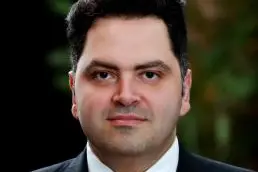PHOTO
STATEMENT FROM UNITED WORLD INFRASTRUCTURE
THE DIRECT EXTRACT ON UAE FROM THE MERCER QUALITY OF LIVING RANKINGS, SAYS:
Mercer’s annual Qualify of Living Rankings featured positive movement for both Dubai and Abu Dhabi in 2016. The report says Dubai (74) continues to rank highest for quality of living across Africa and the Middle East, rising one position in this year’s ranking, followed closely by Abu Dhabi (79), which climbed three spots. Sana’a (229) in Yemen, Bangui (230) in the Central African Republic, and Baghdad (231) in Iraq are the region’s three lowest-ranked cities for quality of living.
Dubai also ranks highest for infrastructure in 51st place. Only five other cities in this region make the top 100, Abu Dhabi (67), Port Louis (94), Muscat (97), and upcoming host of the 2022 FIFA World Cup, Doha in Qatar, which ranks 96th for infrastructure. Cities in African and Middle Eastern countries dominate the bottom half of the table for infrastructure, with Brazzaville (228) in the Republic of the Congo, Sana’a (229), and Baghdad (230) ranking the lowest.
Mercer's full report can be found here (Please note that UWI is not affiliated with Mercer in any way)
Commenting on the findings, Vafa Valapour, Principal at United World Infrastructure, said:
“For relatively young cities, Dubai and Abu Dhabi’s progress up these global rankings is encouraging and indicative of leadership that has a strong commitment to genuinely reshaping the urban reality in the Middle East and further afield,” said Vafa Valapour, Principal at United World Infrastructure.
“The UAE has demonstrated a clear focus on people, putting the citizen experience, including happiness, at the heart of its planning and infrastructure development strategy. By integrating best practices from around the world the Emirates is an innovator in the application of smart infrastructure and urban technology,” he continued.
“A key factor that has contributed enormously to the quality of living ranking is the commitment to sustainability – both social and environmental,” continued Valapour. “Cities today must work harder than ever to be inclusive, enbling citizens to enjoy balanced lives that offer easy access to services such as transportation, and green spaces, promoting active healthy living.”
“I would expect to see both Dubai and Abu Dhabi continue to rise in the rankings positioning themselves as the region’s premier urban destinations whilst taking note of the need to address certain challenges such as road congestion, and the penetration of public transportation as populations rise and the cities expand,” he concluded.
ABOUT UWI:
Operating globally, United World Infrastructure (UWI) invests in the acquisition, development, and management of real-estate and infrastructure assets to stimulate economic growth, technology transfer, and foreign direct investment. Committed to people-centric communities, UWI transforms underutilized land into real-estate assets that attract development catalysts such as theme parks, hospitals, and schools. Its infrastructure assets for new cities include: road networks, water and drainage systems, sewage systems, electricity, telecom networks, and systems for renewable energy and recycling to ensure environmental sustainability. UWI’s financial products, including yield-driven development models and infrastructure and commercial concessions, optimize returns to city investors.
© Press Release 2017




















